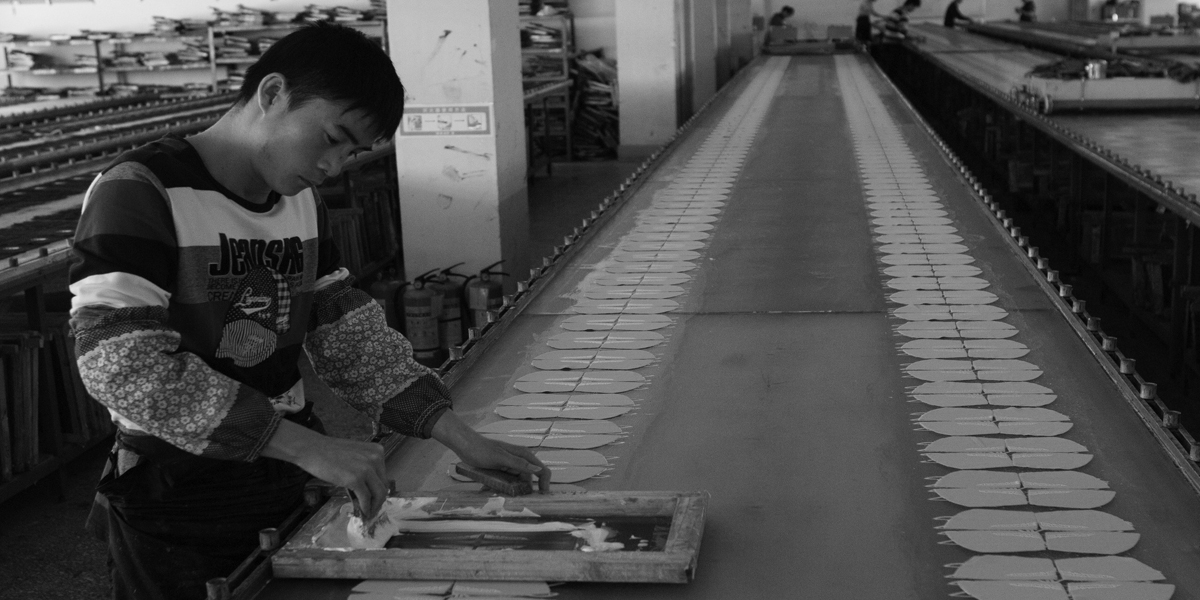Is a constructive relationship with China possible?
China is now the world’s second largest economy measured by GDP. If measured on the basis of purchasing parity it is the largest. Its growth has slowed slightly, but in the last ten years it still on average exceeded 10...
China is now the world’s second largest economy measured by GDP. If measured on the basis of purchasing parity it is the largest. Its growth has slowed slightly, but in the last ten years it still on average exceeded 10 per cent per annum – a rate of change that countries in the West find hard to imagine.
This growth is no longer based solely on exports of labour intensive manufactured goods. China is still the world’s largest exporter of textiles, but other Asian countries such as Bangladesh are fast catching up, and China welcomes this because its strategy is to move its labour force into products with much higher value added, such as electronic goods. China produces more than half the world’s TVs, mobile phones, computers and photo-voltaic cells. It is training about 600,000 engineers a year – compared with less than 50,000 graduates and less than 30,000 apprentices in the UK. Its scientific and technological research is extremely active, e.g. in terms of the numbers of patents awarded, and leads the world in an increasing number of fields, including large-scale 3D printing, nano-materials, and high speed rail. There is an abundance of capital available for investment, and there will be more if China achieves its objective of fully establishing its currency (the renminbi) as an international trading and reserve currency, alongside the dollar.
China has invested heavily in high-tech mega-projects (in this it has something in common with France, though arguably with more success). The size of the country and the scale of its investments facilitates this. Thus, for example, the UK is committed to one new high speed rail project, and is just restarting its investment in nuclear power generation. In China more than 60 cities are being connected by high speed railways and there are many nuclear power projects. Chinese companies are thus in an extremely strong position to supply both these technologies to the UK, in both cases beating French and Japanese competition. The next person to walk on the moon will be from China.
In contrast with many of the other countries that have become rich in recent years, such as most of the Middle East oil producers, China has a large population, and realises that increases in their incomes can provides huge markets which can continue the expansion of its industries. The challenge is to “rebalance” the economy, without losing the benefits of what has already been achieved.
The challenges facing China
Expansion at this rate is not without problems and risks. There are environmental problems, caused by the extensive use of coal to generate electricity (also an issue when it comes to global warming) and in the cities by the rapid increase in the numbers of motor vehicles. There are issues of waste disposal and recycling, where many opportunities are not taken. The availability of water and maintaining its quality, are major challenges. The sheer problems of size are also a potential risk – if something goes wrong in a factory employing 300,000 people, then consumers around the world will be disrupted. There are also concerns about the banking system, especially the regional banks, which are heavily indebted and already finding it hard to get repayment of many loans to local businesses. The labour force is better paid than it was, partly due to shortages of skilled and experienced labour; but there are still questions about the long-term viability of systems where much of the labour force has migrated from the rural areas to the cities and is accommodated in dormitories and hostels. Concerns about inequality, corruption, and human rights issues (as currently in Hong Kong, or levels of compensation when land is taken by the state) are often close to the surface.
The UK has much to offer
It is in this context that the UK has much to offer China –in many different parts of the engineering value chain, including research, design and innovation, but also manufacturing, service and environmental engineering. This can already be seen in joint ventures in the motor industry between MG-SAIC, Jaguar Land Rover and Chery, the London Taxi Company with Geely and MG with Shanghai Automotive. There are benefits in undertaking production in the UK, close to important markets and centres of research – as Chinese companies such as MG, and Indian companies such as Tata and ArcelorMittal (despite it reporting itself as based in Luxembourg!) have realised.
China has made many pioneering innovations in the basic provision of health services, but it now needs to create modern health and social security systems, along the lines of the National Health Service, and British expertise here could be highly relevant. The UK also has many skills in the educational field, as well as a world language, which is why many Chinese students are already studying here and many UK universities are setting up branches in China.
Meanwhile, the UK has hardly grown since 2010, and much of its present so-called recovery is based on the soft sand of low paid or zero hours jobs, low incomes and excessive borrowing to buy houses, pay for higher education and often just to survive. There has been little investment in modern production. Borrowing has increased (when the government said it would reduce it), and levels of exporting are poor (they would be even worse without the West Midlands, the only UK region that runs an export surplus with China). The UK has no alternative now but to do what it did after the second world war, which was to borrow to invest in infrastructure, and to create institutions that will reduce inequality and meet the needs of the mass of the people.
Reciprocity
The result is a win-win situation. But not in a short-term, one-off sense. The above are all long term policy developments, with potential benefits to both parties over many years. It is better to describe them in terms of partnership, or reciprocity, stressing that there are potential benefits for both parties in terms of jobs, growth, quality of life in both countries, and a lessening of the divisions between countries in the world as a whole.
Better relationships with China are timely for another reason. China has never been a fully liberal economy. It rapid growth has been fostered and underwritten by the state, with economic planning on a five-year basis – with anything shorter it is almost impossible to get projects developed, but if it is longer then technology changes so fast that decisions taken at the start of the period become out of date. The last few years have shown the UK that cutting state spending and expecting market forces to fill the gaps is chancy at best, disastrous at worst, so discussion has restarted about the role of the state in promoting investment. We need to learn from China how to use state intervention to good effect. They may also learn from us about some of the risks of getting state involvement wrong, and how to develop policies and strategies to avoid those risks.
Five policy changes
To get these benefits, there is much that needs to be done:
- The UK must make Chinese people welcome, when they come as students, tourists, or on business. That means not putting up barriers to entry at airports, or creating more bureaucracy than absolutely necessary for potential students.
- We must get better understanding of Chinese qualifications, and their achievements, so making it easier to have partnerships and exchanges, for example in our National Health Service.
- We must accept that what is needed cannot be delivered at national level. Civil servants in the Foreign Office in London find it very hard to understand the constraints in the regions, or the type of relationships which can lead to creative joint ventures. These are much more likely to be developed in city-regions, with resources and discretion to take decisions and make investments.
- We need to invest more in understanding Chinese culture, and Chinese languages, not least to disabuse both sides about myths and stereotypes that are often completely out of date.
- In our discussions with China, we should talk openly about how policies have developed in China and the challenges that remain, recognising that they will not be solved by greater commercial pressures or free markets, either internationally (as with the TTIP which gives far too much power to largely unaccountable multinational companies) or locally.
Dr Yufeng Zhang, studied engineering and international finance in Shanghai, global production engineering in Berlin, and global engineering networks at Cambridge, and now works at Birmingham Business School where he coordinates the Europe-China High Value Engineering Network.
Andrew Coulson is a retired lecturer in the School of Government and Society at Birmingham University and Chair of Birmingham Fabian Society.
This paper draws on presentations and discussion at a meeting of Birmingham Fabian Society on 11 December 2014 where Liam Byrne MP, a former cabinet member, now Shadow Secretary of State for Universities, Science and Skills and author of the book Turning to Face the East, which spells out what the UK could and should do to improve its relationships with China was also a speaker.


